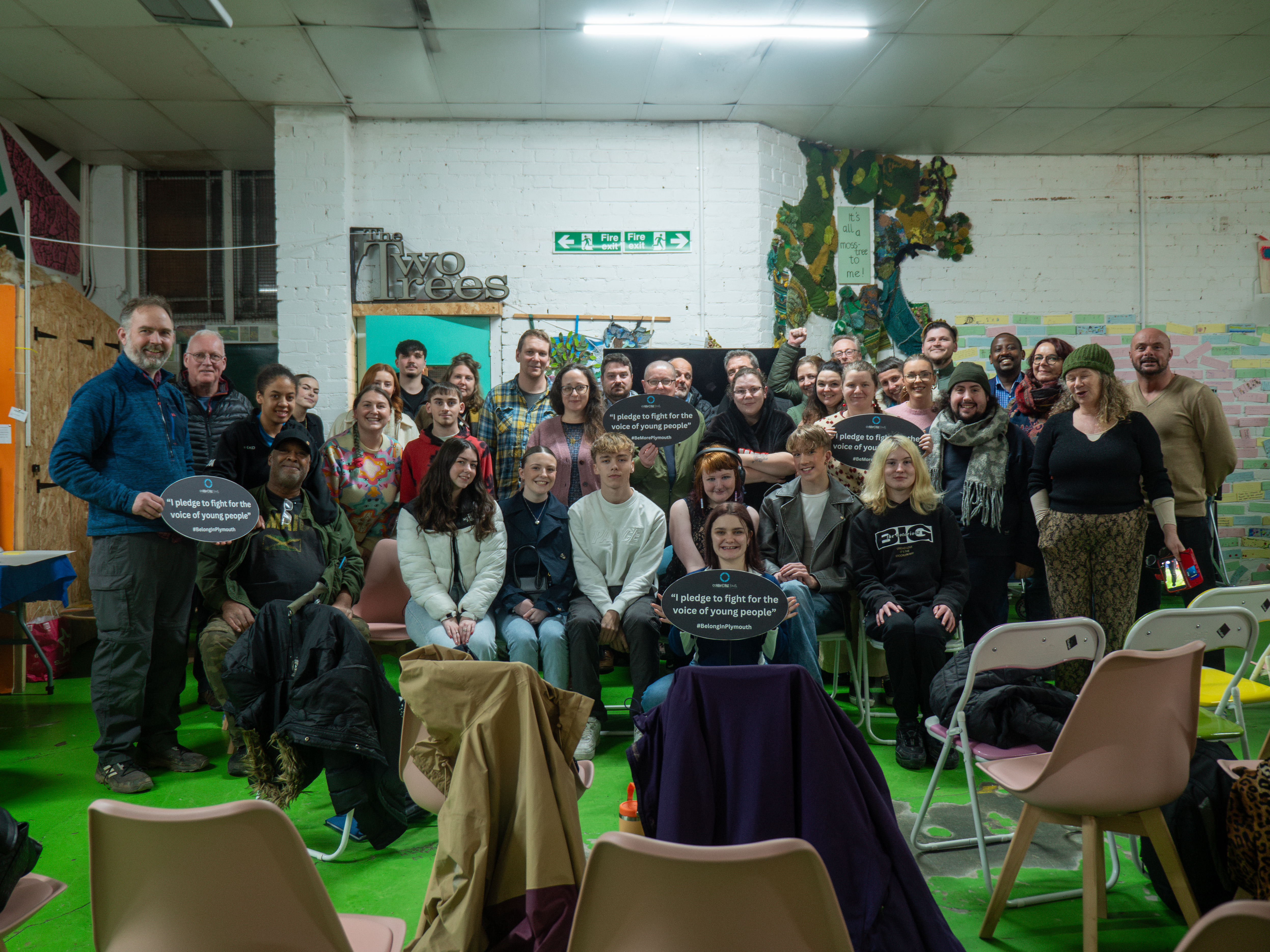Youth Led Work
Because young people need to be heard. We are not just the leaders of tomorrow—we are the voices of today. This section is written by Gabby Lloyd, a member of the Young People's group.

As the saying goes, “Nothing about us, without us.” Another quote that rings true for this project is: “If you want to know what young people need, ask them—and then listen.” Our message is simple but powerful: We are the future, but we’re here now. Let us speak.
The Belong in Plymouth project began with a simple yet powerful question posed to young people across the city: Do you feel like you belong in Plymouth? What followed were honest, sometimes difficult, conversations that unveiled a recurring theme—many young people feel disconnected, unheard, and unsupported in the city they call home. These conversations were not just anecdotal; they were recorded and reviewed, revealing a worrying consensus. Young people consistently expressed a lack of belonging and highlighted that there is little in Plymouth that truly caters to their needs and aspirations.
This overwhelmingly negative sentiment is more than just disheartening—it is damaging. When young people feel excluded from their own communities, it impacts their mental health, self-esteem, and willingness to engage in civic life. It fosters a sense of apathy and alienation that can follow them into adulthood. What we took from these conversations is clear: the voices of young people in Plymouth are being overlooked, and that needs to change.
In response, the Belong in Plymouth group united with a common goal—to amplify youth voices. Our solution was to create a documentary that would serve as both a platform and a protest. We wanted to capture these stories one-on-one, on camera, and share them not only with our community but with national decision-makers. This documentary would become a tool for advocacy, one that we planned to take all the way to Parliament.
While filming, five key issues emerged repeatedly: Education, SEND (Special Educational Needs and Disabilities), Social Life, Finance, and Mental Health. These aren’t minor concerns—they’re pillars of a young person’s wellbeing and development. The consistency of these topics across all interviews showed us that these are systemic issues that demand immediate attention. In response, we divided up the subjects within our group, conducted further research, and came back together to share and reflect.
To create real impact, we organised public events across Plymouth, inviting various stakeholders such as Plymouth City Council, Plymouth City College, and organisations like The Plot. We screened the documentary and hosted discussions to bring these conversations to the forefront. Our goal was not just to speak but to be heard. And through this process, something remarkable happened—we empowered ourselves.
One of the most empowering steps of the project was selecting our own filmmakers. After interviewing several professionals, we chose Fotonow to help bring our vision to life. This decision was made entirely by us, the young people involved, and it set the tone for the rest of the project. We were trusted, respected, and given the creative reins. We learned how to use filmmaking equipment, conducted conversations, and took charge of the narrative. This experience was not only educational—it was liberating.
Throughout the documentary, some organisations acknowledged the need for more accessible spaces and activities for youth. Others disagreed, arguing that enough already exists. But our counterpoint is vital: accessibility is not just about existence. Are these opportunities free? Are they close enough for all young people to reach, especially with rising transport costs? Are they diverse enough to cater to different interests and backgrounds? Accessibility should mean inclusion—not just availability.
The culmination of our efforts led us to London, where we met with Members of Parliament and presented our documentary. It was there we learned that the government is in the process of shaping a new youth strategy and is actively seeking input. This was not an end—it was a beginning. The Belong in Plymouth project is more than just a film; it’s a movement. We now have a seat at the table, and we intend to use it.
Because young people need to be heard. We are not just the leaders of tomorrow—we are the voices of today. As the saying goes, “Nothing about us, without us.” Another quote that rings true for this project is: “If you want to know what young people need, ask them—and then listen.” Our message is simple but powerful: We are the future, but we’re here now. Let us speak.